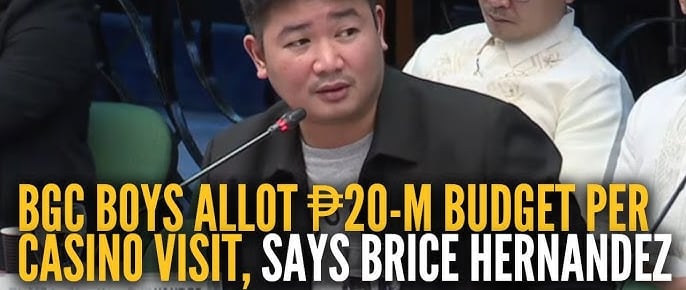Phasing Out Gambling for a Brighter Future
A Wiser Bet for the Philippines
THE EDITORIAL CHEESE
Patrick Petinglay Villavert
11/13/20253 min read


The Philippines stands at a crossroads, grappling with the pervasive presence of a gambling industry that, while generating revenue, silently erodes the very fabric of our society. It's time for a bold and compassionate pivot: a gradual phase-out of gambling activities across the archipelago. This isn't just an economic debate; it's a moral imperative that promises profound, positive impacts on the lives of millions of Filipino citizens.
For too long, the allure of quick riches has overshadowed the devastating costs. We see it in the rising tide of problem gambling, the heartbreaking stories of families torn apart by debt, the erosion of savings meant for education or healthcare, and the societal strain on mental health services. While the coffers of the government may swell from gambling taxes, we must ask ourselves: at what price to the soul of our nation?
A well-planned, gradual phase-out offers a path to genuine progress and upliftment, impacting Filipinos in ways that truly matter:
1. Reclaiming Financial Stability and Reducing Poverty
Imagine a Philippines where hard-earned wages are no longer squandered on the fickle odds of a casino table or the deceptive promises of online betting. A phase-out means:
Savings for Essentials: More money will remain in household budgets, directed towards food, education, healthcare, and stable housing, directly alleviating poverty.
Reduced Debt Burden: Families will be freed from the crushing weight of gambling debts, allowing them to rebuild their financial foundations and plan for a secure future.
Entrepreneurship and Investment: Resources previously diverted to gambling can be channeled into productive investments, small businesses, and community development, fostering sustainable economic growth from the ground up.
2. Strengthening Family Units and Community Bonds
Gambling addiction is a silent destroyer of families. Its gradual elimination will foster stronger, more resilient communities:
Healed Relationships: With less financial stress and the absence of compulsive gambling, domestic disputes often linked to addiction will decrease, promoting healthier family dynamics.
Improved Mental Health: Reduced stress, guilt, and hopelessness associated with gambling losses will lead to a significant improvement in the mental well-being of individuals and their families. This will lessen the burden on an already strained public health system.
Focus on Productive Endeavors: Communities can shift their focus from the quick, destructive thrill of gambling to collective efforts in education, sports, arts, and local enterprises, fostering genuine community spirit and productive engagement.
3. Fostering a Culture of Hard Work and Prudence
A society less reliant on the lottery of chance is one that values diligence, perseverance, and prudent financial management:
Restored Dignity of Labor: By gradually removing the temptation of "easy money," we reinforce the dignity of honest work and the satisfaction derived from earned success.
Financial Literacy: The shift will naturally encourage greater emphasis on financial literacy and responsible money management, equipping Filipinos with crucial life skills for long-term prosperity.
Reduced Crime and Corruption: The ancillary illegal activities often linked to gambling, such as loan sharking, kidnapping, and money laundering, will naturally diminish as the legal industry shrinks, leading to safer communities and less corruption.
4. Directing Government Resources to Essential Services
Currently, a significant portion of gambling revenue flows into government coffers, making an immediate ban challenging. However, a gradual phase-out allows the government to:
Diversify Revenue Streams: It compels the government to explore more sustainable and ethical tax bases, reducing reliance on a socially costly industry.
Reallocate Funds to Social Programs: Freed from dependence on gambling revenue, the government can more consciously and ethically fund vital public services like education, healthcare, and infrastructure, without the moral compromises inherent in gambling profits.
The time for change is now. A gradual phase-out is not about judgment; it's about giving our citizens a real fighting chance. It's about betting on the inherent strength, resilience, and potential of every Filipino family. It's a long-term investment in national well-being that will yield dividends far more valuable than any casino jackpot – a healthier, happier, and more financially secure Philippines for generations to come.
Let us choose a future where true prosperity is built on hard work, family values, and genuine opportunity, not on the fleeting and often destructive promise of a gamble.
